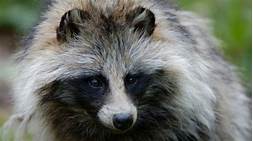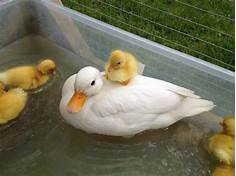Can You Have a Raccoon Dog as a Pet?
Raccoon dogs are unique and fascinating animals that have attracted the attention of many potential pet owners. However, due to their wild nature and specific requirements, it's crucial to understand the complexities involved before deciding if a raccoon dog is the right pet for you.

Can Raccoon Dogs Be Kept as Pets?
1. Legal Considerations:
In some areas, raccoon dogs are classified as exotic pets and may have specific legal requirements or restrictions. It's essential to research local laws and regulations to ensure that keeping a raccoon dog as a pet is permitted.
2. Wildlife Concerns:
Raccoon dogs are wild animals and can pose certain risks to public health and ecosystems. Some countries and states have regulations in place to prevent the introduction of non-native species or potential disease carriers, including raccoon dogs.
Suitability as Pets
1. Activity Level and Enclosure Requirements:
Raccoon dogs are active and curious creatures. They require ample space to roam, climb, and explore. They also have a natural digging instinct, so a secure enclosure is essential to prevent them from escaping.
2. Feeding and Diet:
Raccoon dogs have a varied diet that includes fruits, vegetables, insects, and small animals. Providing them with a balanced diet that meets their nutritional needs can be time-consuming and challenging.
3. Socialization and Training:
While raccoon dogs can be social and playful, they are not naturally domesticated animals. Training and socialization from an early age are crucial to ensure they behave appropriately in human environments.
4. Veterinary Care and Lifespan:
Raccoon dogs require specialized veterinary care due to their unique physiology and potential for carrying diseases. Their lifespan is typically 8-12 years, with proper care and attention.
Alternative Options
1. Dogs and Cats:
Dogs and cats are popular domesticated pets that have been bred for companionship and loyalty. They offer a wide range of breeds with varying temperaments and needs, making them suitable for various lifestyles.
2. Small Mammals:
Small mammals like rabbits, hamsters, and guinea pigs can make excellent pets for those looking for smaller and easier-to-care-for companions. They require less space, specialized enclosures, and specific dietary needs.
3. Birds:
Birds, such as parrots and finches, can be fascinating and interactive pets. They offer unique vocalizations, colorful plumage, and a lifespan that can extend for many years.
In conclusion, while raccoon dogs can be intriguing and captivating animals, their suitability as pets is complex and requires careful consideration. Understanding their legal status, unique requirements, and potential challenges is essential before making a decision. Alternative pet options, such as domesticated animals or small mammals, may be more suitable for those seeking companionship and less demanding care.
Declaration: All article resources on this website, unless otherwise specified or labeled, are collected from online resources. If the content on this website infringes on the legitimate rights and interests of the original author, you can contact this website to delete it.





